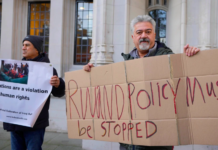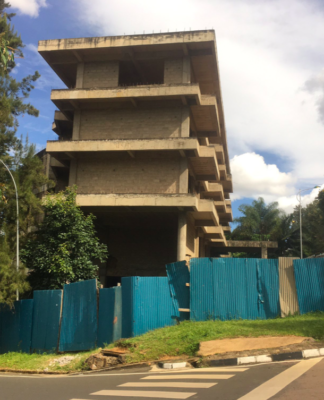
In a recent legislative move, the UK has passed a contentious law enabling the deportation of asylum seekers to Rwanda. This decision has sparked a wave of criticism both within the UK and internationally, highlighting profound concerns about the moral and logistical implications of such a policy.
The legislation, which finalizes an agreement initially made with Rwanda two years ago, allows for the deportation of any asylum seeker arriving in the UK illegally. British Prime Minister Rishi Sunak has announced that the first deportation flights are scheduled to depart as early as July.
While the Rwandan government has expressed satisfaction with the progression of this plan, opposition within Rwanda has been vocal in their disapproval. Victoire Ingabire Umuhoza, a noted critic of Rwandan President Paul Kagame, described the agreement as akin to “modern slavery.” Ingabire, who has previously been imprisoned after challenging Kagame in elections, articulated concerns over Rwanda’s capability to adequately host and support the incoming asylum seekers.
“Regime enthusiasts claim this deal will bring substantial financial gain, yet they disregard the human element involved—these are individuals seeking refuge,” Ingabire remarked to Radio France Internationale (RFI). She highlighted the pressing domestic issues in Rwanda, such as food insecurity, malnutrition, poverty, unemployment, inadequate housing, and political repression, questioning the feasibility of properly accommodating the refugees.
Further critique came from Frank Habineza, leader of the Democratic Green Party of Rwanda, who argued that wealthy nations like the UK should not outsource their responsibilities to third countries. “We are firmly opposed to such deals, whether with Denmark, the UK, or Israel,” Habineza stated.
According to the UK’s National Audit Office, the British government has already transferred €256 million to Rwanda for migrant hosting duties, with an additional €175 million expected over the following three years, plus €176,000 per resettled individual for related expenses. The overall expenditure for this policy could total approximately €700 million.
Despite the extensive preparations in Kigali, including the renovation and construction of facilities like the 100-bed Hope Hostel using UK funds, it remains unclear how many of the 50,000 potentially deportable individuals Rwanda can realistically accommodate.
The UK government asserts that this law will serve as a deterrent, discouraging migrants from attempting risky crossings from northern France to southern England. Boo Adam, a 26-year-old Sudanese migrant interviewed in Calais, France, expressed his dismay upon learning about the UK’s plans, highlighting the personal impact of such policies on individuals like him.
Legal and humanitarian challenges are anticipated, with the European Court of Human Rights having previously blocked similar deportation efforts. With the upcoming general election in the UK, the future of this controversial policy remains uncertain, especially as opposition parties and human rights organizations continue to voice their opposition.






























































